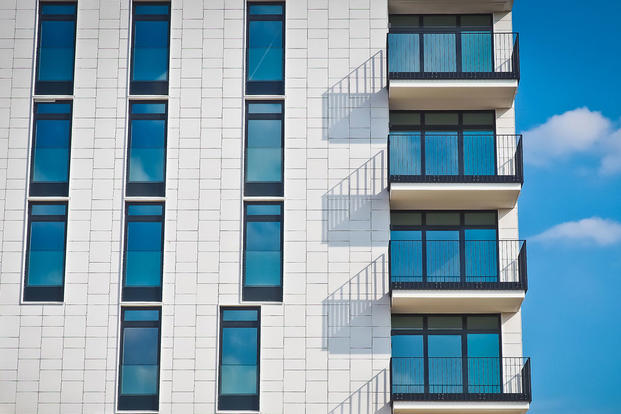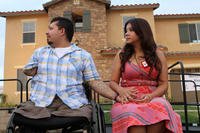A two-story home in the suburbs, a condo in the city, a modular home in the countryside. For many servicemembers and their families, buying a home and laying down roots is a powerful step to reentering civilian life. No matter what a Veteran’s ideal home, a VA home loan can help.
For more than 70 years, returning servicemembers have been able to purchase homes without a down payment or perfect credit through loans issued by approved lenders whose loans are backed by the VA and the U.S. government. Some conventional loans may require at least 20% down, making homeownership a challenge for many Veterans. With their competitive rates, no private mortgage insurance, and option for no down payment, VA loans have made homeownership possible for millions of Veterans and their families. They may be able to do the same for you.
“During the turmoil of the mid-2000’s, when the housing bubble burst, the VA loan program offered a level of service and help that we couldn’t get through a conventional mortgage,” says Jamie Cox, who served as an officer in the Marine Corps for 20 years, retiring as a Lieutenant Colonel. Cox has used VA home loans several times throughout his career. Now in retirement, he’s used a VA loan to buy a home in Texas. “It’s a great benefit to have.”
The VA loan is one reason that 79% of Veterans own their homes versus 63% of the non-veteran population, according to Forbes. While the VA home loan program is flexible, it also has its limits. It’s important to understand what a VA loan can be used for to see how it fits in with your goal of homeownership.
Qualified borrowers can use the loan for many purposes, including buying a move-in ready, existing home. Most borrowers who qualify for a VA loan end up purchasing a single-family home. You can also refinance your home with a VA cash out refinance, and use the money to upgrade or repair your current home.
Townhomes and Condos
Borrowers can also buy a townhouse or condo in a development that’s been approved by the VA. If a property you’re interested in isn’t approved by the VA, don’t worry. Your lender can help your Home Owner’s Association (HOA) ask the VA to approve the development. The process, however, could take several months to complete, so be prepared to wait.
VA loans can be used for a multiunit property of up to four units per eligible borrower as well, as long as the borrowers live in one of the units full-time. Veterans can also refinance their existing home loans into the VA program, where they may get better rates.
Veterans often ask, can I build my own home with a VA loan? Yes. However, it can be tricky to find a VA lender willing to make a zero down payment construction loan. Builders and home plans must both be VA-approved, and multiple inspections are required. Builders also have to provide a one-year warranty on homes. Some service members work around these issues by financing their new construction with a local institution, and then later refinancing the loan on their newly built home into the VA program.
Mobile and Manufactured Homes
Veterans can also buy a mobile home, or a manufactured home, through the VA program, though not all lenders will finance mobile homes since they can be risky investments for lenders; their value decreases over time. Getting a VA loan for a mobile home is more feasible if you own the land where your mobile home will be parked. Also, mobile and manufactured homes must be affixed to their foundations - no ifs, ands, or buts.
Prefabricated, or modular, homes are easier to finance through VA loans than mobile homes. These homes are built at a factory in sections and then put together on site by a contractor. Modular homes—which must be attached to a permanent foundation—are more likely to appreciate than mobile homes.
Investment Properties, Living Abroad, and Houseboats
Say you want to buy a property as an investment, to lease out to tenants. Can a VA loan cover that? The VA is clear: that’s a no go. VA loans also can’t be used as a business loan, to buy farm land that doesn’t house your permanent residence, or to buy a second home. Co-ops also aren’t allowed.
What about buying a home abroad? Also, not allowed, says the VA. The spirit of the VA loan program lies in primary residences that Veterans live in as their primary residences, not vacation homes. Loans, however, can be used in U.S. territories, including American Samoa, Guam, the Northern Mariana Islands, Puerto Rico and the U.S. Virgin Islands.
Borrowers often wonder about houseboats or RVs. The VA says no. Any property without a fixed, permanent foundation can’t be considered for a VA loan. If you’re looking for a single-family home, a condo, town home or even a mobile or modular home, however, a VA loan is a great option and should be explored.
Ready to Get Started?
If you're ready to get started, or just want more information on the process, the first step is to get multiple no-obligation rate quotes. You can then discuss qualifications, debt to income ratios, and any other concerns you have about the process with the lenders.










